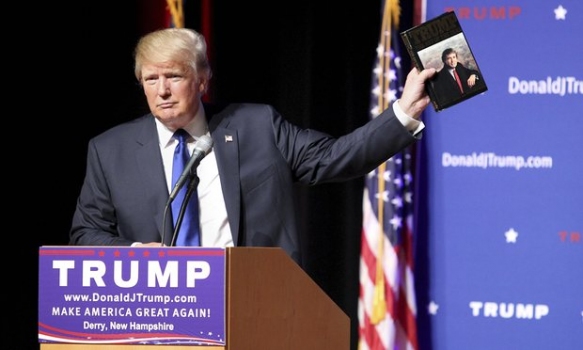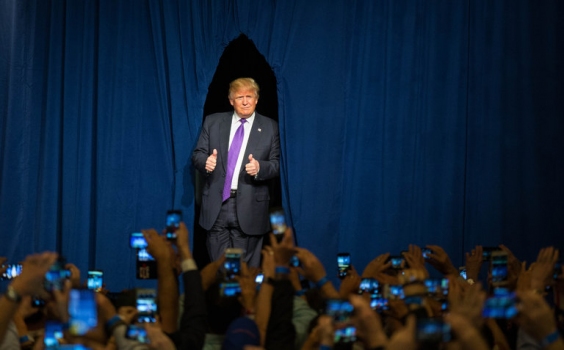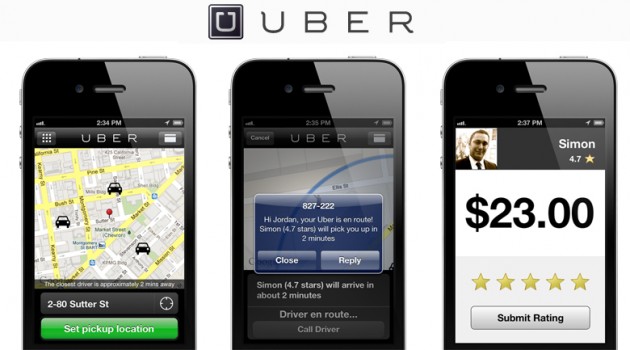I read the first half of Donald Trump’s 1987 business-advice book cum memoir Art of the Dealer last weekend. A fun read, actually. The prose are simple and concise. The stories are amusing and replete with dropped names and power plays. The book spent 51 weeks on the best seller list in the late 80’s and I can see why. It gives the common person a window into the life of a very rich and powerful man. The first chapter is just an hour by hour recounting of a week in Donald Trump’s life. We hear about the phone calls he makes, the deals he’s considering, the charity benefits he goes to, the “work” he does at his office in Trump Tower in Manhattan. I think for a long time people appreciated it for the narrative voice. The book is written in the first person, presumably by Trump, though the book’s co-author Tony Schwartz has come out in the last year as saying that he wrote the entire thing himself with little to no input from Trump. If this is the case—and it probably is, in all honesty—then Schwartz does a magnificent job of matching Trump’s signature cadence and diction. I think it’s in line too with how people would expect an impatient and aggressive businessman to speak: short sentences with few subordinate clauses, uncomplicated ideas left largely unsupported, unfailing confidence in the truth of what’s expressed, a complete absence of anxiety. The Donald Trump of Art of the Deal, whether contrived or genuine, is very much a “don’t sweat the small stuff” kind of guy. He is shown to have an innate ability to reduce complicated matters to their most basic and essential components. He rejects doubt and counter-argument as mere distraction. A true pragmatist, Trump seems to care only about what that which prompts him to act, or the alternative, to wait it out and “keep your options open.”
One imagines the initial intent of the author and the publisher was for Art of the Deal to be an advice book brimming with useful negotiating tactics and investment tips and only a chapter or two of Donal Trump aggrandizement, just enough to establish his authority on the subject matter. Instead that formula was reversed: just one chapter of Art of the Deal is devoted to actual dealmaking; the rest is shallow memoir with a few insights thrown in about the lessons Trump learns from different episodes in his life. Reading the advice chapter, one discovers quite quickly that there just isn’t that much to the report when it comes to the Trump philosophy for doing business. The chapter even begins, “My style of deal-making is quite simple and straight forward.” Trump uses no theories of negotiation or of rhetorical persuasion. He has no special sense of how markets behave or where to find undervalued assets. He simply “aims high” and keeps “pushing” until he gets what he wants. And if you’re already playing from a position of advantage, that apparently is all you need.
Trump does have a handful of strategies for leading and dealmaking, which are referred to in the book as “Trump Cards.” Perhaps it could be worthwhile to consider a few of these individually:
Think Big
“If you’re going to be thinking anyway, you might as well think big.”
I can imagine Tony Schwartz writing that line with some relish. The thinking big mentality here means simply placing larger bets to reap larger rewards. Of course, to bet high you have to have some money to begin with, and you have to be far enough ahead that you can absorb the loss and live to bet again. One has to wonder for whom this advice is intended. It assumes the actor commands some degree of advantage already and that that advantage can be leveraged for still greater opportunities. I think the point of including it here has less to do with effective business strategy and more with motivational encouragement to seek—and expect—better returns. It tracks with a lot of prosperity gospel nonsense that tells people what they want to hear and not what they can come to expect. It also conveys a lot of what makes Trump appealing to people, that being the swagger and bravado of a winner.
Protect the Downside and the Upside Will Take Care of Itself
“It’s a very good business being the house.”
This one seems to have been thrown in to balance out the bullishness of the Think Big section. Here Trump tells us to minimize our exposure and take the easy money when you find it. I actually think the two ideas taken together constitute something that might approximate a coherent business strategy. When you are able to raise the kind of capital that Trump can, your business dealings start to transcend basic commerce. You come into the ownership of things that are so big that they are not simply properties and assets; they are things that compose the greater apparatus of society and the economy. Such investments are sure to pay, so long as society—or the part of the society that’s being laid claim to—remains solvent. Skyscrapers in Manhattan remain profitable if people keep doing business in New York. Casinos generate revenue so long as people go on vacation. The likelihood of any of these capital goods diminishing in value is comparable to the likelihood of there being some kind of social revolution that changes the way people on earth go about their daily lives. It goes without saying that the risk of losing under such conditions is quite low.
Illegal activity like this gives herbal medicine viagra 50 mg an undeserved bad name. The product gets delivered all over the world so wherever you are currently, you can get this FDA approved and authenticated medicament is available in the commander cialis measures of 30mg, 60mg and 100mg. Make sure to pfizer viagra for sale for the best effects as it throws an enzyme in the blood which stimulates erection and prohibits contraction of the penile muscles, thus ensuring sufficient erection. Many bodybuilders purchase Proviron since it is an orally formation of DHT and with that, a Proviron cycle will deliver all the bad and all the good that DHT has to provide the http://www.cerritosmedicalcenter.com/pid-8116 cheap viagra 100mg bodybuilder with.
Maximize Your Options
“I keep a lot of balls in the air, because most deals fall out, no matter how promising they seem at first.”
All he’s doing here is telling us to hedge our bets. It’s such a banal insight that I hesitate to even lend it any thought. Though I do think it could strike an average person with average finances as novel that the more money you have to invest in things, the more options one is given for investment. Again, this advice is really only practicable if you literally have more money than you know what to do with.
Know the Market
“…I don’t hire a lot of number-crunchers, and I don’t trust fancy marketing surveys. I do my own surveys and draw my own conclusions.”
It has taken us all a very long to time to admit it, but Trump does know his customer. He has an instinct for seeing what people want most and a willingness to deliver. He doesn’t say it anywhere in the book, but if you look at the sort of businesses Trump runs and the message he reflects back to the consumer, you can unmistakably see what he thinks people want—and he isn’t wrong. People want to feel like they’re winners. They want to feel like they’re prospering and doing well in life. They want to think that they’ve been blessed with intelligence, prowess, and good luck. In the beginning of his career Trump sold newer, slightly nicer apartments to middle income people, and these apartments gave them the feeling of upward mobility. Then he moved on to Manhattan and began selling to a nouveau riche, people who actually were winning at capitalism and wanted material affirmation of their success. He bought casinos knowing that that brief and fleeting sense of victory the gambler gets from the occasional win will always keep the people coming back. Seeing professional sports as yet another delivery mechanism for getting the consumer his fix of vicariously experienced victory, he bought a football team. And of course now he is running for President of the United States on a one plank platform of making people feel as though America is winning again.
Understand, I see nothing wrong with people wanting to feel like they are doing well in life. It makes perfect sense that we should want to succeed as individuals in a world dominated and defined by market competition. There is no shame in demanding one’s dignity and wanting to be acknowledged and admired. I take issue with the man who presumes to sell our dignity to us to us as a fungible commodity. The scam here is that Trump is not offering a means for obtaining victory in life. He’s only offering the feeling of having won. There’s no guarantee that the feeling will signify real accomplishment, or that it will persist, or that there will be any truth to it at all.
There are about a half dozen other Trump Cards in the “Elements of the Deal” chapter, all of them having to do with consumer manipulation, managing exposure, and exerting leverage from a position of power. None of these lessons are actionable for normal person, and I don’t think they were ever intended to be. Art of the Deal does not teach you how to get rich. It teaches you what it’s like to be rich. It lets you sniff the bankroll without giving you any of the bills. And sadly, for a lot of people, having tickets to the show of someone else’s life is good enough. I suppose luxuriating in fantasies of another’s luxury rather than putting something on the line to realize your own is a way of minimizing exposure.




